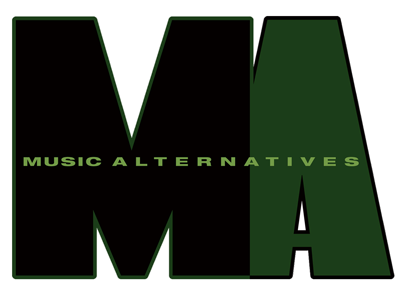Kelsey Waters
Powerful singer. Sharp songwriter. A live performer since her teenage years. After spending more than a decade in the studio, the writing room, and onstage, there are few roles Kelsey Waters hasn't played.
Even so, she saves her best work for songs like "One More Habit," rolling her life story into dark, guitar-fueled music inspired by pop noire and rock & roll.
Waters' story begins in northern Florida. She grew up splitting her time between the city, where her mother kept a music room in the house, and the beach, where her father ran a folk art gallery. A songwriter since her early teens, Waters was gigging five nights a week by the time she enrolled at FSU as a design major. She eventually left school altogether and focused on music full-time, opening for the Indigo Girls during her first year outside of the classroom.
After years of local shows in Florida clubs and beach bars, Waters moved to Nashville in 2013, drawn north by the city's songwriting community. She signed a publishing deal during her first year in town. Now a professional songwriter and top-shelf storyteller, Waters found herself able to sit in a room with a stranger and create a melodic, narrative-driven song. Released in 2017, the Cool Cars EP highlights four of those songs, shining a light not only on Waters' compelling vocals but her writing chops too.
Things get more personal on Waters' new material. This is raw, guitar-driven music, heavily inspired by the female rockers of the '90s ("I'm a '90s baby," Waters admits, listing Sheryl Crow, Joan Osborne and Fiona Apple as influences) as well as self-assured legends like David Bowie, Led Zeppelin, and the Beatles. If the songs from Cool Cars take a look outward, spinning stories of made-up characters and fictional relationships, then newer tracks like "One More Habit" find Waters looking at herself, doing some self-analysis along the way.
"I waited until I was 26 to allow myself to have my own voice as an artist," she says, "and that’s what this new project is all about. I turned inward for the writing inspiration, which was a new concept, and allowed myself to open up about addiction, heartbreak, and sexual desire. This is around the time a good friend of mine, Mark Selby, took an acoustic guitar out of my hands during a co-write and swapped it for an electric…Thus, I became hooked, and that only further inspired the sound of this new project."
Also inspiring the sound of Waters' new project is producer Oscar Charles, another childhood fan of Zeppelin and the Beatles. Working together at Nashville's Sound Emporium recording studio, Waters and Charles carved out a sound that nodded to the past while still pushing forward. They double-tracked Waters' vocals, a move that saluted John Lennon. They made use of the studio's reverb chamber and vintage gear. With the rhythmic "How Do You," they channeled the modern influence of British dance-rock, then nodded to the 1970s by adding a conga track.
"I didn't purposefully say, 'Lets make this sound old school,'" Charles says. "I just can't help it because that's what I grew up with. We captured sounds that you can't get in your bedroom studio. Kelsey sang background vocals straight into the studio's reverb chamber with its door open. We climbed down inside to get the claps for 'I Pour.' You might be able to emulate the reverb, but you can't get those creative ideas from looking at a plugin."
From the sexy strut of "I Pour" to the slinky, minor-key grind of "Want," Waters' newer songs reintroduce an artist who, now entering her second decade as a musician, is writing her best material to date. It's a sound that's raw, real, and inviting. It's also the foundation for Waters' full-length debut, paving the way for an artist who isn't afraid to shine a light on her darker side.

